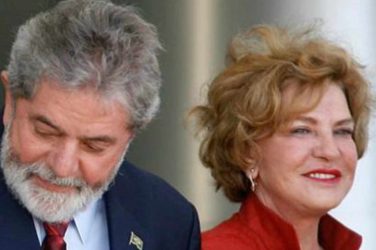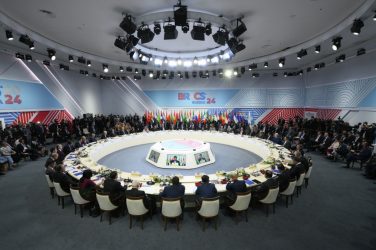 Brazil’s Federal Supreme Court gave a green light to preliminary investigation into President Michel Temer’s involvement in the state-controlled oil multinational Petrobras corruption case.
Brazil’s Federal Supreme Court gave a green light to preliminary investigation into President Michel Temer’s involvement in the state-controlled oil multinational Petrobras corruption case.
In June, former Petrobras executive Sergio Machado told investigators that the chairman of the country’s senate, Renan Calheiros, and Planning Minister Romero Jucá intended to stop the investigation into the Petrobras corruption scandal once Temer took over as head of the country. The allegations were denied by the president’s office.
The preliminary investigation into the corruption case has been approved by Judge Teori Zavascki. The involvement of Calheiros and other senior officials will also be considered. The president’s office is said to have refused to comment on the issue.
Petrobras was headed by former Brazilian President Dilma Rousseff in 2003-2010, who faced popular discontent after the company’s corruption schemes were revealed in 2014.

It transpired that several government officials had been signing contracts, charging 3 percent commission fee of the amount of the contract. The money received was used for bribing police and public officials. Those behind the corruption scheme made about US$ 3.8 billion, according to the Brazilian authorities.
The upper house of the Brazilian parliament voted 55-22 earlier in May to start impeachment proceedings against Rousseff after she was accused of concealing the country’s budget deficit ahead of the 2014 re-election. Rousseff was replaced by Temer for the duration of her 180-day impeachment trial.
Corruption
Temer is already barred from running for public office. The president has been accused by the former boss of Brazil’s largest oil transportation company to have illegally requested campaign donations in 2012.
Former Transpetro head Sergio Machado alleges that Temer had requested campaign contributions for São Paulo’s 2012 mayoral election campaign that stemmed from contract kickbacks from Transpetro’s parent company, Petrobras.
Gabriel Chalita ran the 2012 campaign and at the time was a member of Temer’s centrist party, the Brazilian Democratic Movement Party, or PMDB. Temer, however, has denied any wrongdoing. Senate President Renan Calheiros, also a member of the PMDB, was named in the probe by Supreme Court Judge Teori Zavascki.
Temer and other political figures named in the probe will have charges pressed against them if prosecutors can find enough evident in their preliminary investigation.
Petrobras
Petrobras is currently involved in Brazil’s biggest corruption scandal. Over 100 people have so far been arrested for their alleged involvement in the scandal, including dozens of other high profile executives. The investigation was launched in 2014 after investigators started to note billions of Brazilian reais being moved across the world.
Temer and the PMDB have been widely unpopular as a result of Rousseff’s ousting and widespread austerity measures, which has been met by strong opposition from around the country with a number of protests staged calling for his removal.
The austerity measures include a spending freeze of social programs for 20 years and plans to privatize 32 major resource and infrastructure projects. Protesters and unions say that the changes will remove basic protections for Brazilian workers and exacerbate poverty and inequality.
Temer is currently allowed to hold the presidency until the end of 2018 when elections are due, but he remains barred from running for any public office for eight years after he was found guilty of electoral violations by spending more than the legally allowed amount of his own money on this own campaign.








